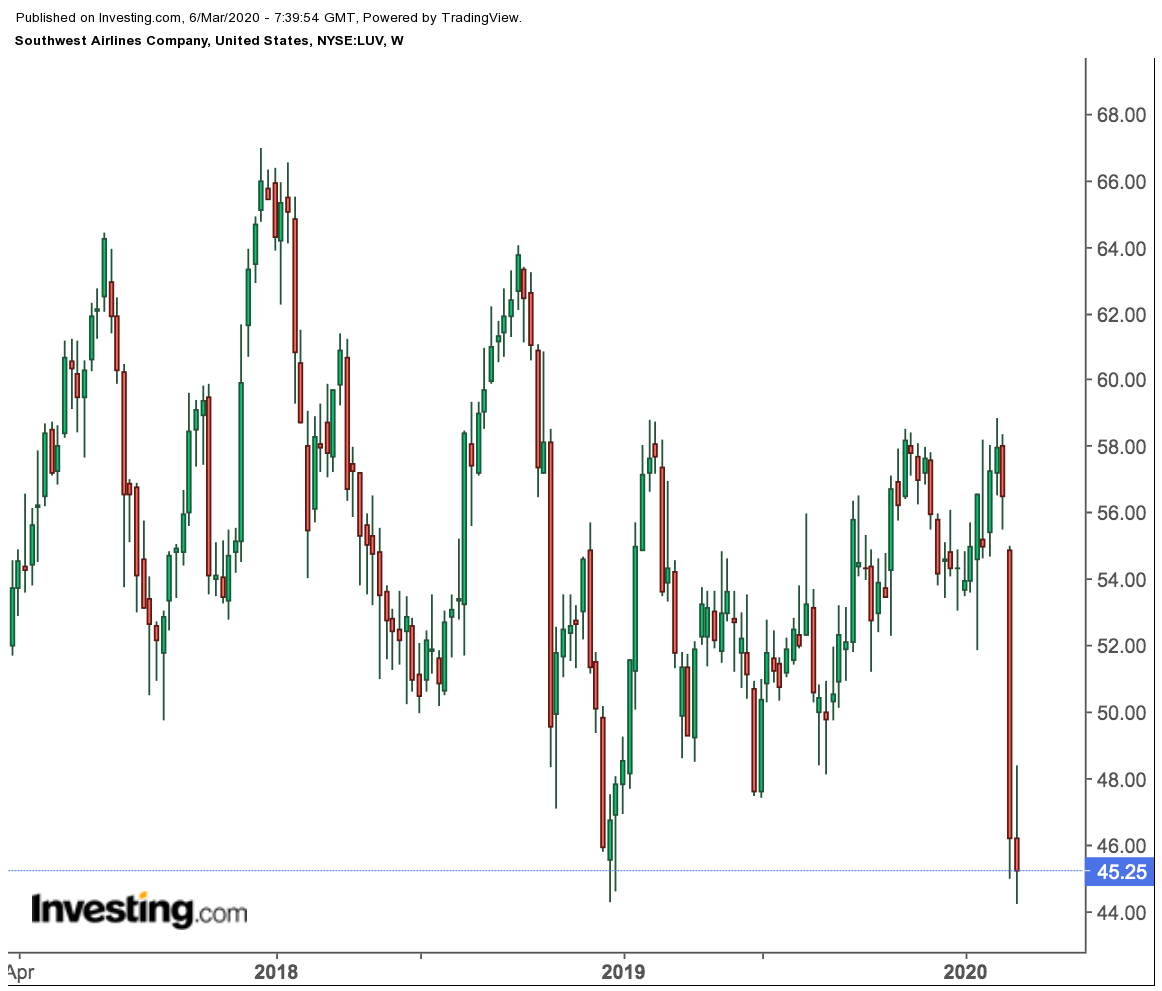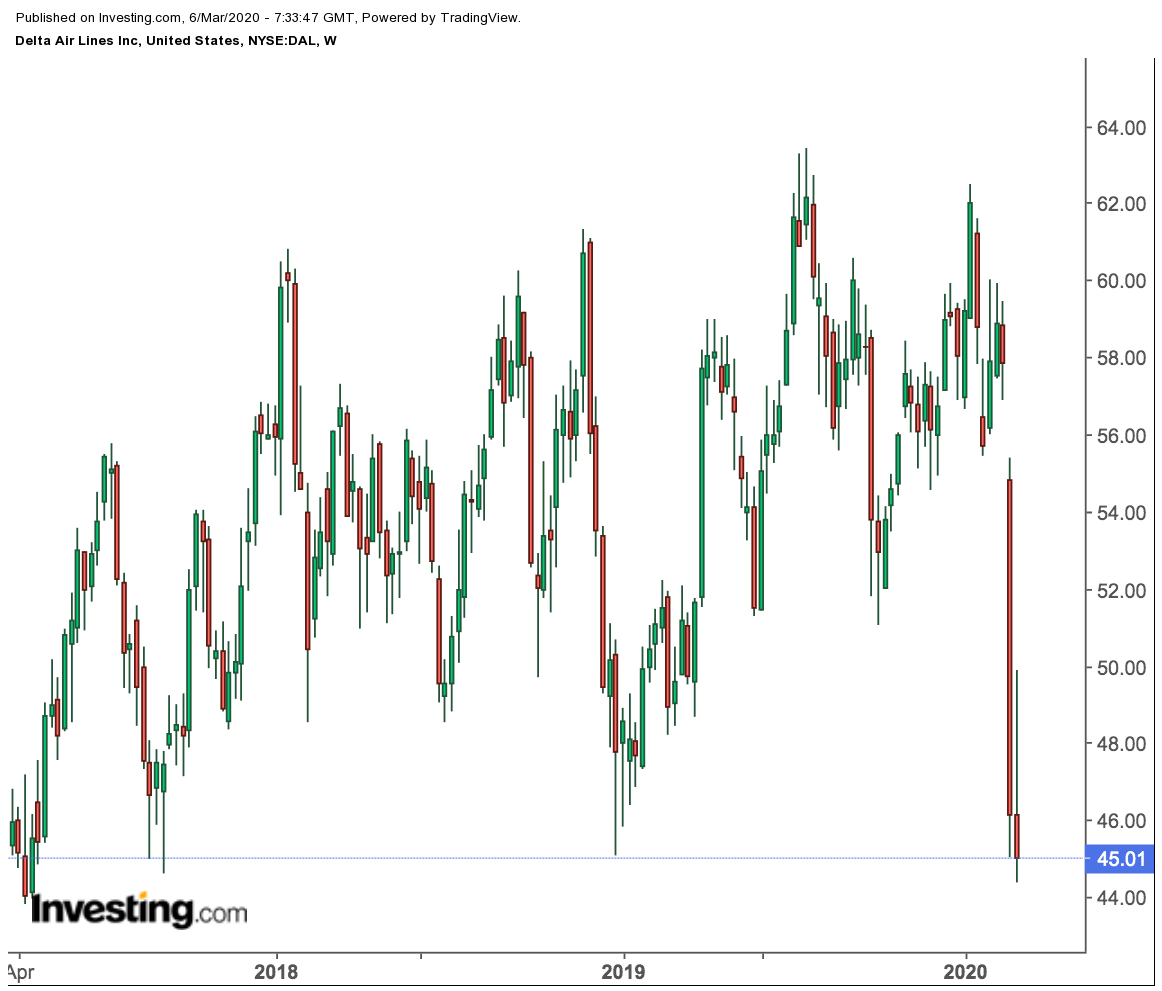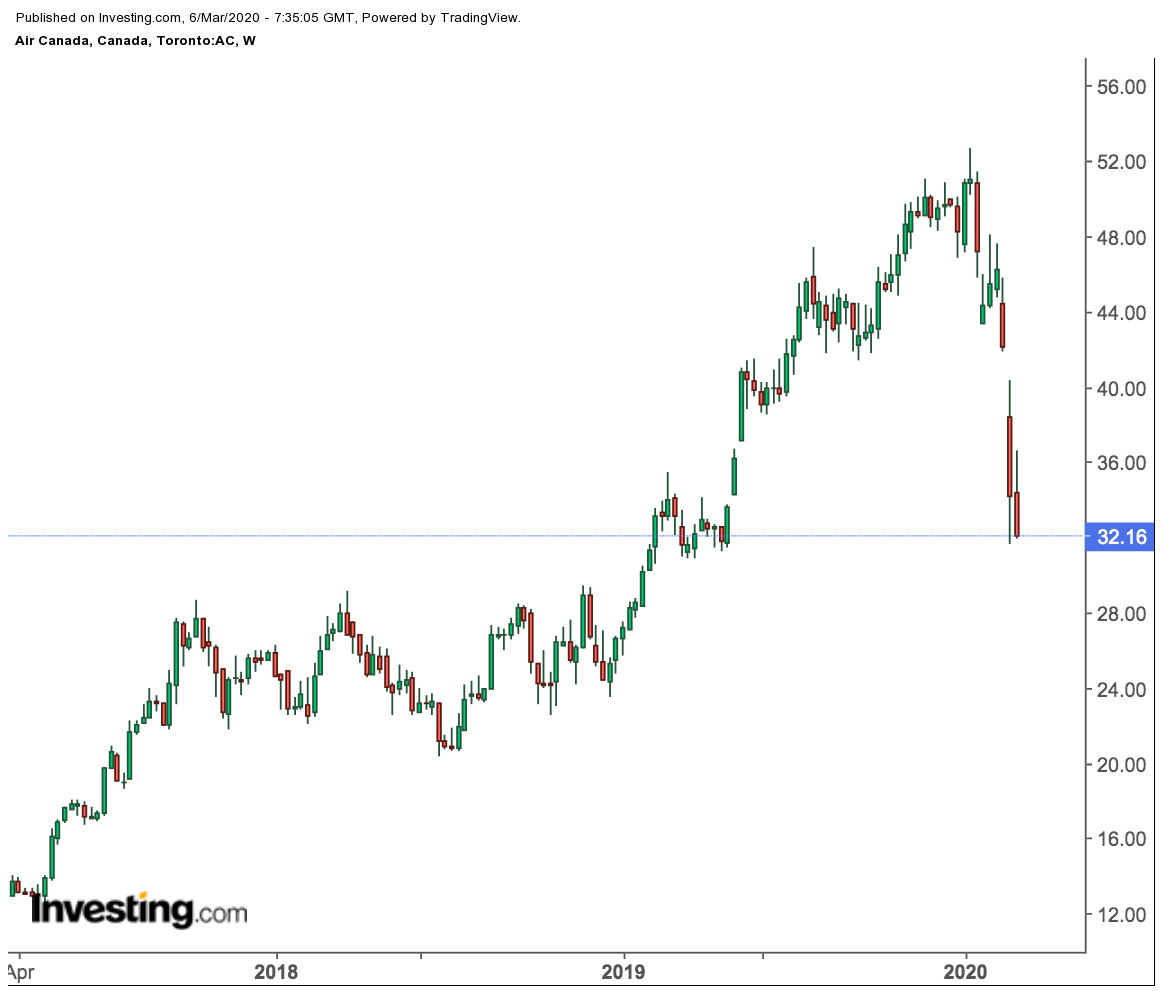One of the most-exposed sectors of the economy to the coronavirus outbreak is the airline industry. The extent of damage to this vital part of our economy threatens to be huge as people cancel their leisure trips, while companies and governments globally put curbs on their workers’ travel plans.
Revenue losses for global airlines will amount to $63 billion this year, even if the outbreak is contained, and could surge to $113 billion if it spreads further, the International Air Transport Association estimated in a report Thursday.
The latter “would be on a scale equivalent to what the industry experienced in the Global Financial Crisis,” the industry trade body said.
As the frontline stocks that take the first hit from recessionary pressures, airlines are massively underperforming in this month’s slump. From the equity markets’ record high on Feb. 19, U.S. and European airline stocks had fallen 21% and 30% respectively by the end of last week, compared with a 14% drop for both regions’ headline indexes.
Southwest Airlines (NYSE:LUV) warned investors yesterday that the outbreak will cost the U.S. carrier up to $300 million during the first quarter. “In recent days, the company has experienced a significant decline in customer demand, as well as an increase in trip cancellations, which is assumed to be attributable to concerns relating to reported cases of COVID-19,” the airline said. The shares of Southwest dropped 3.6% yesterday to $45.28.
Value in Beaten-Down Stocks
While the world’s largest airlines take the hit from the spread of the coronavirus, there are investors who are finding value in the beaten-down airline stocks. Their theory is that the virus-related fear can’t permanently damage these companies' ability to make money and they will be back roaring once the outbreak is contained.
With interest rates falling quickly and governments ready to provide the stimulus, some investors are betting on the long-term health of the U.S. economy, which has been on a solid growth path with a low rate of unemployment for several years.
With stocks close to their cheapest ever relative to the broader equity market, airlines offer a cheap trade for those who want to buy the dip. This is especially true for the U.S., where IATA expects the impact of the outbreak to be lower, and where most carriers are financially healthy.
The world’s most famous value investor, Warren Buffett is in the camp of optimists. His giant holding company, Berkshire Hathaway {{NYSE:BRKa, boosted its stake in Delta Air Lines {{NYSE: NYSE:DAL last week after the airline stock value plunged 20% in seven days as markets tumbled.
Berkshire acquired more than 976,000 shares for about $45.3 million, or an average price of $46.40, according to a filing on Monday. After that trade, Berkshire’s holding in Delta swelled to about 71.9 million shares, the filing shows.
But if you’re not as optimistic as Warren Buffett is about the future of the economy, then this is certainly not the right time to buy airline stocks as there could be more pain to endure before we see a bottom in these stocks.
Just to provide a perspective, Delta Air stock plummeted to around $5 in the middle of the 2008 financial crisis before recovering over the next ten years, to hit a high of $63.44 in July 2019. They closed down 7.2% yesterday, at $45.01.
The shares of Air Canada (TSX:AC), which was the leading airline stock last year after surging 87%, tumbled to C$0.78 (US$0.58) in 2009. But last year's performance followed a decade which saw a strong rebound, taking its stock price to over $50 (US$37.3) a share. Yesterday the shares dropped 8.2% to close at $32.16 (US$24).
Bottom Line
It’s hard to predict how much worse the current slump in airline stocks can become, given the uncertainties associated with the coronavirus outbreak and its impact on the global economy and the travel industry.
But if you want to take a contrarian position and bet on airline stocks, then the shares of those U.S. airlines which have low debt levels are probably your best bet. At the top of this list are Delta Air, United Airlines Holdings (NASDAQ:UAL) and Southwest.
